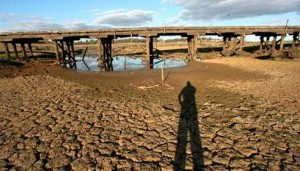Publishers Weekly invited me to contribute an essay to their weekly “Why I Write” column. My piece ran on November 18; for those of you who, like me, don’t have a subscription to PW, here’s the essay:
Years ago, when I was in my twenties, I heard an interview with the composer Aaron Copland. The interviewer asked why it had been over a decade since Copland’s last completed composition. I thought the question was insensitive but Copland’s answer frightened me: “Songs stopped coming to me,” he said.
I wasn’t a published writer at the time, but I was a lifelong writer of stories and poems. These were a private exploration of an interior landscape. My earliest memories include the stories that came to me when I was a small child. The thought that these might stop (“as if someone turned off a faucet,” Copland also said) seems as terrifying to me today as it did all those years back.
I write because stories come to me. I love language, I love playing with words and rewriting and reworking, trying to polish, trying to explore new narrative strategies, but I write stories, not words. Many times the stories I tell in my head aren’t things I ever actually put onto a page. Instead, I’m rehearsing dramas that help me understand myself, why I act the way I do, whether it’s even possible for me to do things differently. Where some people turn to abstract philosophy or religion to answer such questions, for me it’s narrative, it’s fiction, that helps sort out moral or personal issues.
At night, I often tell myself a bedtime story—not a good activity for a chronic insomniac, by the way: the emotions become too intense for rest. When I was a child and an adolescent, the bedtime stories were versions of my wishes. They usually depicted safe and magical places. I was never a hero in my adventures; I was someone escaping into safety.
As a young adult, I imagined myself as a published writer. For many years, the story I told myself was of becoming a writer. Over a period of eight years, that imagined scenario slowly made me strong enough to try to write for publication. After V I Warshawski came into my life, my private narratives changed again. I don’t lie in bed thinking about V I; I’m imagining other kinds of drama, but these often form the subtext of the V I narratives.
I’m always running three or four storylines: the private ones, and the ones I’m trying to turn into novels. I need both kinds going side by side to keep me writing.
Storylines are suggested by many things—people I meet, books I’m reading, news stories I’m following—but the stories themselves come from a place whose location I don’t really know. I imagine it as an aquifer, some inky underground reservoir that feeds writers and painters and musicians and anyone else doing creative work. It’s a lake so deep that no one who drinks from it, not even Shakespeare, not Mozart or Archimedes, ever got to the bottom.
There have been times when, in Copland’s phrase, the faucet’s been turned off; my entry to the aquifer has been shut down. No stories arrive and I panic, wondering if this is it, the last story I’ll ever get, as Copland found himself with the last song. If that ever happens permanently, I don’t know what I’ll do.
So far, each time, the spigot has miraculously been turned on again; the stories come back, I start writing once more. Each time it happens, though, I return to work with an awareness that I’ve been given a gift that can vanish like a lake in a drought.



